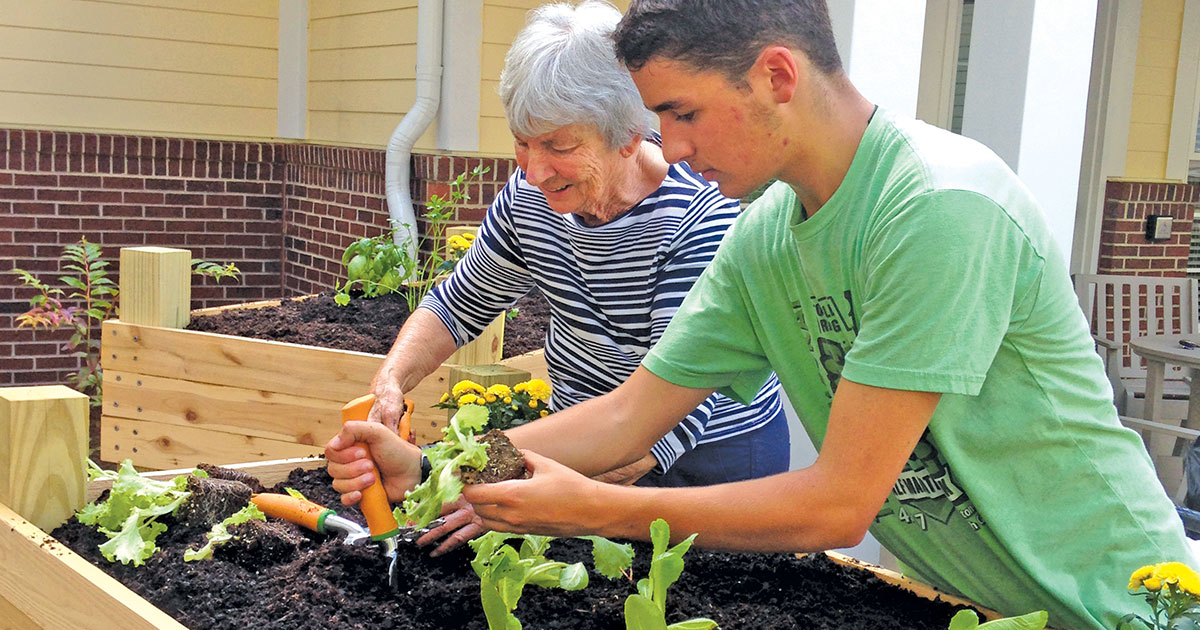Dementia changes those who are affected—and the change can be significant. Did your father or mother go from being a constant source of support to not remembering an important event in your life? Can your beloved spouse no longer pay the bills, file the taxes or arrange for house repairs?
After a dementia diagnosis, here are some questions families should explore:
- How can you support your loved one through this process?
- Are the financial and/or legal matters in order?
- Is help available for household chores and responsibilities?
- If outside of the home placement is needed, do you have an idea of what is available?
David Troxel, dementia expert, author of “A Dignified Life” and creator of the Best Friends Approach™ said because of associated memory loss and confusion, your mother, father, sister, brother, husband, wife or partner may no longer know you or understand his or her relationship to you. This may leave you feeling sad, confused, frustrated or even angry about these losses.
Located in northern Winston-Salem, Salemtowne is the only senior living center in North Carolina that offers Troxel’s Best Friends Approach to residents who live in their own small, secure residence called Westerly Place. Salemtowne’s Westerly Place offers assisted living level of care, including assistance and cueing with routine daily activities such as bathing, dressing, grooming and taking medications.
“At Salemtowne, we use the Best Friends Approach to provide a different and much better method of dementia care. We get to know each resident on an in-depth level, so we can be a ‘best friend,’” Salemtowne Memory Care Support Coordinator Rona Klein said. “Residents whom live at Salemtowne in Westerly Place know we are on their side and, over time, we gain their trust.
“A best friend initiates activities. A best friend listens. A best friend gives compliments. And a best friend offers encouragement. It may sound simple, but these types of daily interaction can reduce dementia behaviors that are challenging and ultimately foster cooperation,” Klein added. “The Best Friends Approach can help a person living with dementia operate at his or her best for as long as possible.”
The benefit of dementia care at Salemtowne goes beyond the walls of Westerly Place. If your loved one needs more assistance than Westerly Place can provide, Salemtowne offers a higher level of dementia care in a secured residence using the same Best Friends Approach residents are accustomed to at Westerly Place.
“I cannot tell you what a blessing Salemtowne has been for my family,” said Mark Goslen, whose father, Allen, is a resident at Westerly Place. “In a relatively short time, my Dad has gone from someone who worked long hours every day to someone who no longer knows my name.
“The programs and activities at Westerly Place are incredible. I saw my Dad the happiest he’s been in a year when I visited him a couple weeks ago and found him baking pigs in a blanket with three other residents. And my Dad is someone who hadn’t been in a kitchen for 50 years,” Goslen added. “I rest easy at night knowing my Dad is being cared for at Salemtowne by professional staff who also have become friends of my family. I don’t know what I’d do without Salemtowne.”
For more information about Salemtowne’s Westerly Place and the Best Friends Approach, please visit salemtowne.org/memory-care-westerly-place, call (336) 767-8130 or email [email protected].
__________________
Westerly Place Offers
- Assistance with bathing and dressing
- Medication management
- Chef prepared meals
- Structured activities throughout the day
- MUSIC & MEMORY programming
- All private rooms with private bathrooms including shower
- Bathing spa
- Hair salon
- Household design—rooms designed around a safe central courtyard in a secure environment
- Central living room dining room and courtyard


















